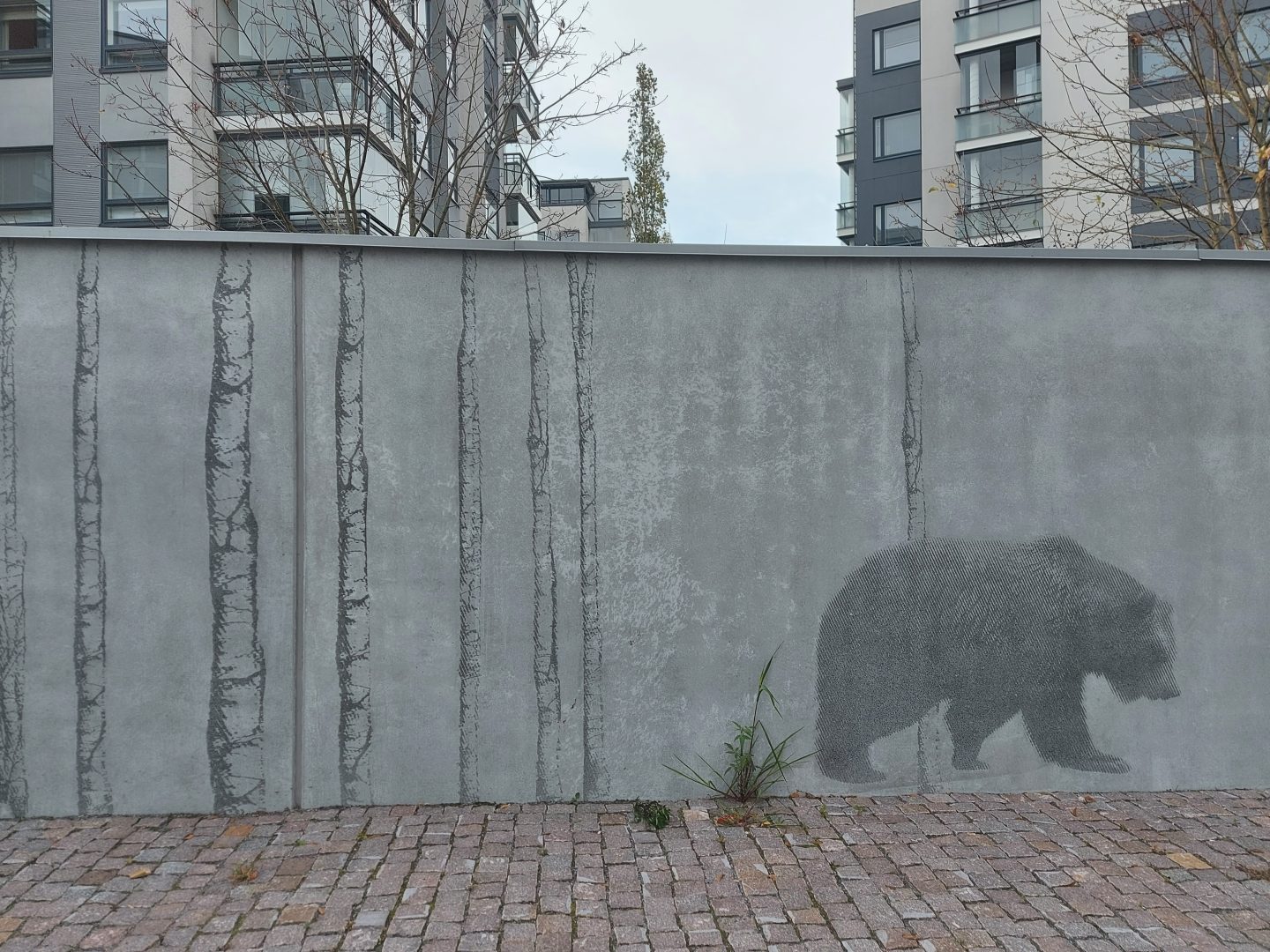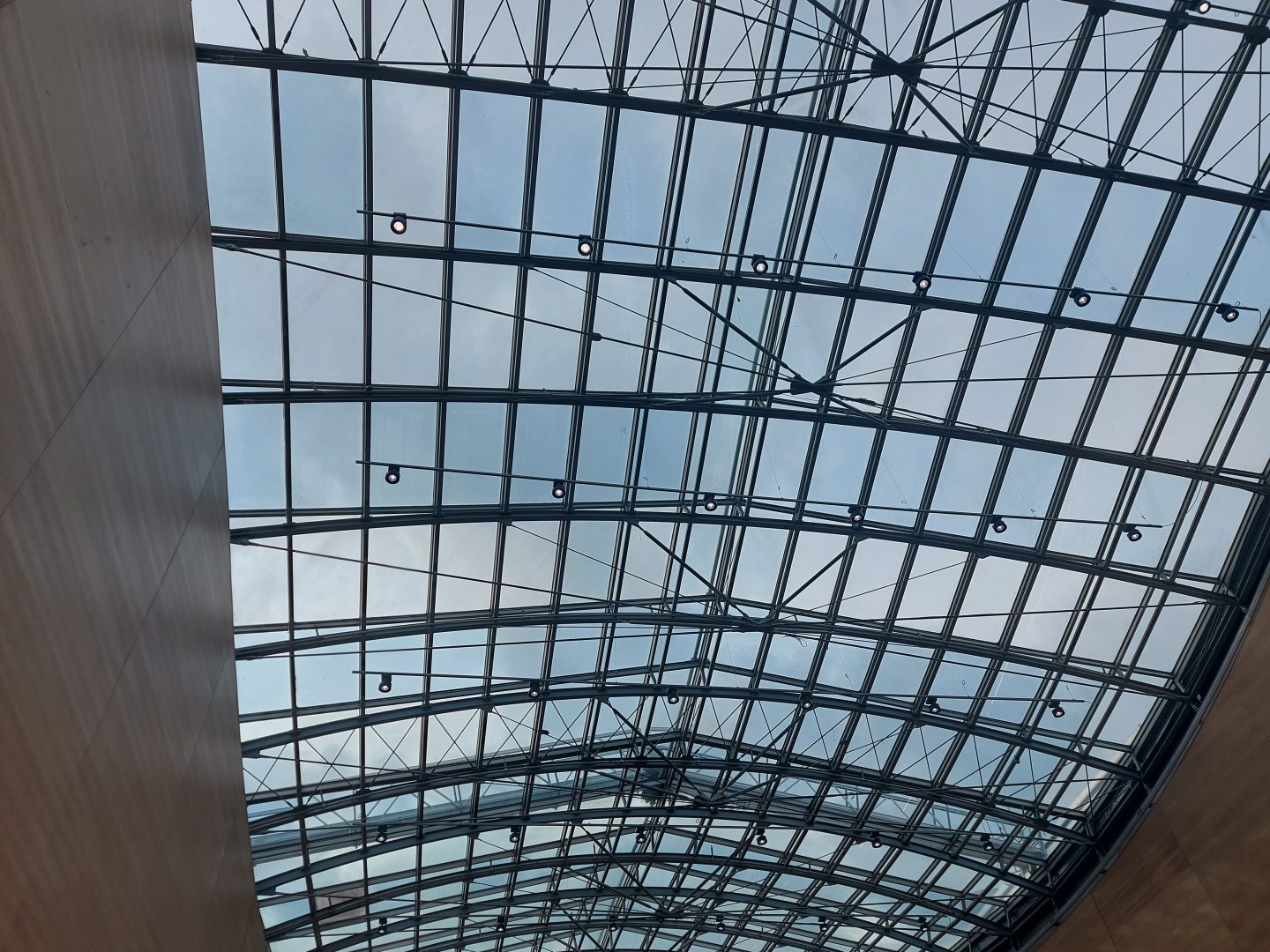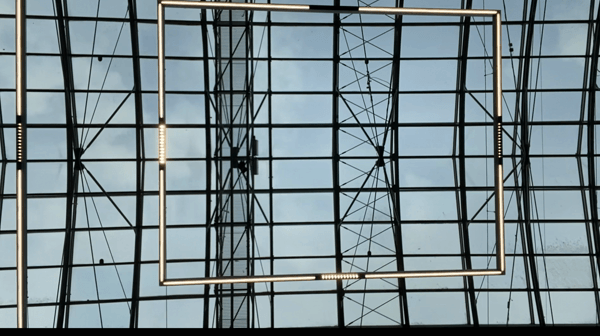by Labiba Abdul


“The reason I took these specific pictures is due to my self-imposed symbolism on them. For example, I believe the glass ceiling is a metaphor for feeling like a caged bird trapped in a consumerist society, forced to indulge in materialistic desires. It shows a clear boundary between what feels like the very epitome of capitalism (the mall itself) and freedom from the system. We are allowed to peek into the distance only when confined within the walls built by the very system that entraps us. As for the second picture, I believe it symbolizes the lost facades of our once abundant ecosphere, so a direct depiction of the degradation of the environment. This message especially comes through due to the medium used; a concrete slab in which there is the faint shadow of a bear; an almost direct juxtaposition of industrial prosperity and the losses on the biosphere that occurred from that. Especially considering the fact that this was in fact, a wall that closed off a children’s playground, it almost feels as if there is a dissonance in priority; a temporary source of entertainment for children at the cost of the gift of nature.”
The racism of climate change
The issue of climate change is racist. Now, you might be thinking, how could something as abstract as the issue of climate change, which is completely based on the degradation of our biosphere, have anything to do with complex social structures such as racism? Unfortunately, as with many independent phenomena existing in this world, the evil hands of racism manage to squeeze their way through and get a strong grip.
The history books are very clear. Until very recently (post-WWII), it has been observed that European settlers and their Anglo-American counterparts have ravaged through all the corners of the world. Whether it be the genocide of entire racial groups, the trading of enslaved people of color (POCs), the stolen lands of colonization, it is apparent that POCs have been the punching bag throughout the times. If we dig in deeper, we see that the advancement of Western society is far from a clean process, stained with splotches of forced labor and extreme depletion of resources. All of these topics shouldn’t be a surprise to anyone. I mean, they’re common knowledge! So how does this relate to the racism of climate change Labiba, you ask?
Well, you see, our contemporary world exists within an artificial paradigm shift. There is a common, yet naively false belief, that the racism of textbooks no longer applies. While this can be easily debunked by showcasing the treatment towards POCs in the modern-day, simply unfolding the eco-crisis gives quite a convenient answer. I’d like you to imagine a scenario. Let’s take a trip down memory lane and go back to the days when you would have a silly argument with your (possibly hypothetical) sibling. As an attempt to diffuse the situation, an adult figure would, of course, intervene. Almost as instinct, you feel the words bubble in your throat; “But it wasn’t me, they started it!”.
Countries such as India and China have a peculiar image on the world stage. Dirty, filthy, have they no manners? They are the leaders of pollution, they’re evil! Look at them contributing to climate change with no remorse, it’s disgusting! Right? Hey, this sounds kind of familiar… What was that one thing we learned in history? Was it the Industrial Revolution? When plumes of soot would be pumped out of chimneys by the second? With finite fuel consumption being available to the West first? These weapons of bio destruction were utilized initially by the West, the very countries crying wolf and virtue signaling against third-world countries who are simply teetering their way around, trying to find their footing in the global economy. The utter hypocrisy behind expecting such developing countries to simply drop their breakthroughs and development after endless lifetimes of abuse and destruction at the hands of the West is laughable. The West stands atop an ocean of the blood and tears of their historical repercussions and yet they dare to point fingers.
At what point can we declare what is right and what is wrong? Why can a nation possessing a booming economy shame other countries adopting the very same practices as them? Why are all countries expected to provide equal contributions towards this hellish crisis, when there are certain reparations which MUST be paid back to the victims of history? There is no equality in climate change. It is a burden that falls on the shoulders of those who, well, started it.
